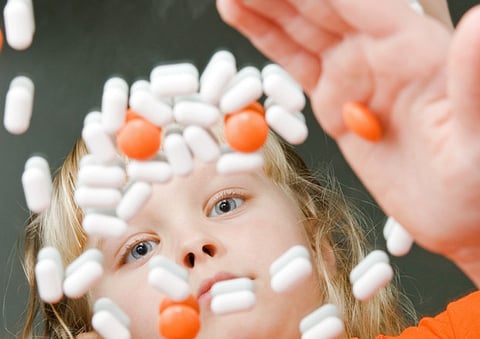High energy or ADHD?
The use of social media sites and other communication channels can distract children. Experts caution against assuming your child has ADHD without proper diagnosis

Renee Coutinho’s older son had always been quite a handful. He was an extremely active, happy and inquisitive little boy, always on the move. As a toddler he simply hated going to bed at night, thinking he would miss out on something exciting while asleep. His attention span was also very low — no toy or activity ever held his interest for more than five minutes.
“As I was married into a family of doctors, it was naturally assumed that such a high activity level was because of Attention Deficit Hyperactivity Disorder (ADHD). We took him to a few doctors and they prescribed medicines to calm him down,” says Coutinho (name changed on request).
“After observing my son and his behavioural patterns, I realised that he was just a normal, energetic one-and-a-half-year-old boy, who constantly needed exciting activities to keep him busy. I started filling his space with activities that would interest him. I wanted to go the extra mile to hone his special abilities rather than simply asking him to slow down,” says Coutinho.
Does labelling help?
Instead of analysing their symptoms in developmental contexts or identifying the underlying causes of children’s behaviour, parents are often too quick to label a child’s inattentive, impulsive and erratic behaviour as an indication of ADHD. However, does this labelling really help?
“Kids with ADHD function differently, and, we do them a great disservice by labelling them as disabled,” says Anne Maxwell, a child and family therapist and certified Access Consciousness facilitator. Maxwell has also worked with children with ADHD for more than 20 years. “When labelled like that, children grow up thinking there is something wrong with them, when in fact, they are capable of many things that others are not,” adds Maxwell.
ADHD is a very common emotional and behavioural disorder that affects approximately 5 to 7 per cent of children globally with symptoms typically presenting before the age of seven. Boys are twice as likely to be diagnosed with ADHD as girls.
Children with ADHD have trouble focusing on one thing and organising tasks and activities. They easily get distracted and often act without thinking. They sometimes also talk excessively, fidget constantly and interrupt others. Waiting their turn and following directions or instructions can be challenging for them.
The specific causes of ADHD are yet to be pinpointed, but the disorder is most likely caused by a combination of genetic and environmental factors.
“Genes play a causal role as ADHD has been shown to run in families,” says Carey Kirk, Counselling Psychologist, The LightHouse Arabia. Environmental factors such as exposure to cigarette > smoke or alcohol during pregnancy and high levels of lead and pesticides may also cause ADHD in children.
“Babies with low birth weight may have an increased risk of ADHD,” says Dr Raymond H. Hamden, Clinical and Forensic Psychologist, Human Relations Institute & Clinics. “The same is true for children, who have had head injuries, particularly an injury to the frontal lobe,” he says.
It is important for parents to understand that all children naturally experience some classic ADHD symptoms to varying degrees throughout their development. This, however, does not mean that they have the disorder.
Screen fixation
For children with ADHD, technology and screen media can be a double-edged sword. Staying connected is critical for today’s generation, but too much screen time can have a huge impact on their physical and mental health.
Though there is no definitive proof that increased screen time can cause ADHD in children, research continues to show that an overexposure to screen time can greatly exacerbate attention problems and lead to poor social skills. “At The LightHouse Arabia, our work with families in the community has also supported these research findings as many of the families whose children experience attention difficulties report that their child’s screen exposure far exceeds recommended limits,” points out Kirk.
Experts, however, also point out that children with ADHD perform better when they have more than one thing to focus on. “They often do well with online video games, which are stimulating and fast paced,” Maxwell says.
High energy kids
Treatment options for ADHD usually include a combination of medication, psychotherapy, education, and skill building exercises. “Psychotherapy for children with ADHD most often takes the form of behavioural therapy, in which the child learns how to become more aware of [himself] and to manage his behaviour in more effective and socially appropriate ways,” says Kirk.
The traditional treatment options, however, often take care of only the outward symptoms and don’t adequately address what’s underneath, warns Maxwell. “For kids with ADHD, instead of telling them to focus or concentrate, try giving them more than one thing to do at a time. They always do better if they have several balls in the air at the same time,” she suggests.
Coutinho agrees. “I was fortunate to be able to recognise a gift in my child and today, when I look at my 20-year-old, I feel so content to have gone that extra mile – he is a confident warm and sensitive human being, who is multifaceted and creative. He plays guitar, composes music and writes poetry and short stories. And he’s academically orientated. He is very aware of his role in society and is willing to be different and question [things] whenever required,” says the proud mother.



